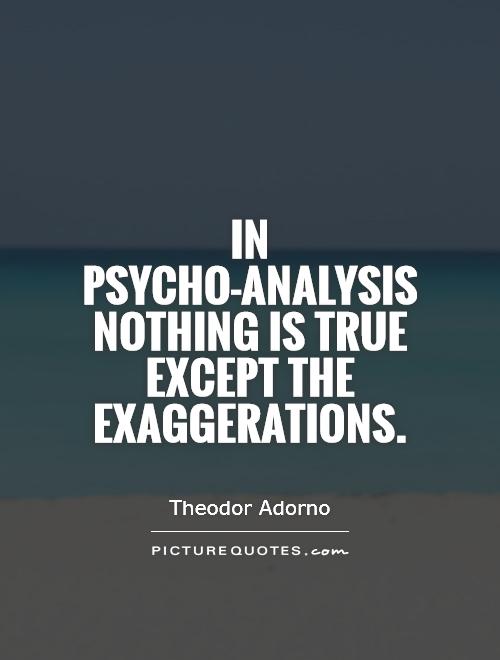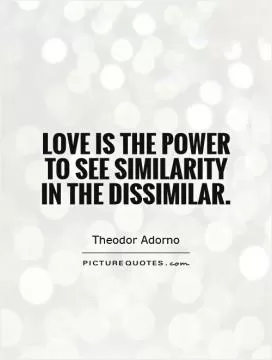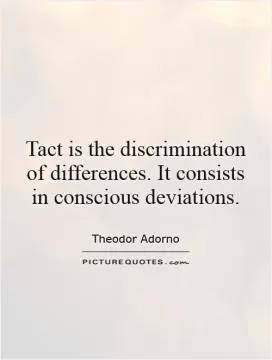In psycho-analysis nothing is true except the exaggerations

In psycho-analysis nothing is true except the exaggerations
The statement "In psycho-analysis nothing is true except the exaggerations" can be interpreted in various ways, especially when considering the work of Theodor Adorno, a prominent figure in the Frankfurt School of critical theory. Adorno was a staunch critic of psychoanalysis, particularly the work of Sigmund Freud, whom he believed to be overly reductionist and deterministic in his approach to understanding the human psyche. Adorno's own theories on the nature of truth and reality were deeply influenced by his Marxist perspective, which emphasized the role of social and historical forces in shaping individual consciousness.From Adorno's perspective, the idea that "nothing is true except the exaggerations" can be seen as a critique of the tendency in psychoanalysis to reduce complex human experiences and emotions to simplistic explanations. Adorno believed that the exaggerations and distortions that occur in the process of psychoanalysis are not necessarily reflective of underlying truths, but rather are symptomatic of the limitations of the method itself. In other words, the very act of trying to uncover hidden meanings and motivations in the unconscious can lead to a distortion of reality, rather than a deeper understanding of it.
Adorno was particularly critical of Freud's concept of the Oedipus complex, which he saw as a reductive and essentialist explanation for the complexities of human relationships and desires. Adorno argued that Freud's emphasis on the role of sexuality and aggression in shaping individual behavior overlooked the broader social and historical context in which these impulses are formed. For Adorno, the exaggerations and distortions that occur in psychoanalysis are not simply a byproduct of the method, but are inherent to its very nature as a form of inquiry into the human psyche.












 Friendship Quotes
Friendship Quotes Love Quotes
Love Quotes Life Quotes
Life Quotes Funny Quotes
Funny Quotes Motivational Quotes
Motivational Quotes Inspirational Quotes
Inspirational Quotes